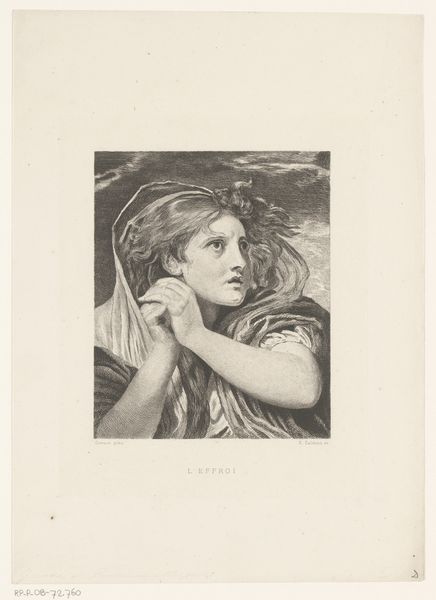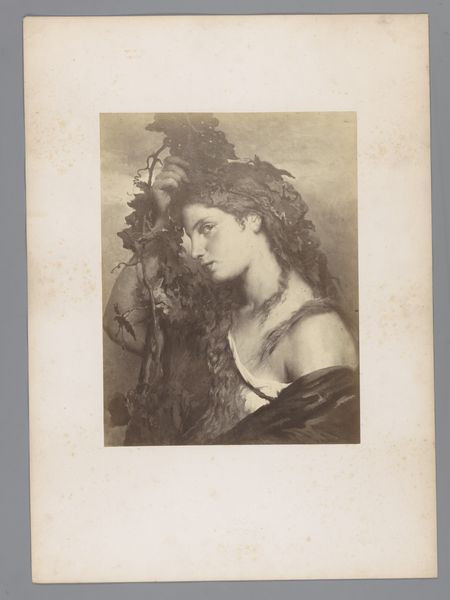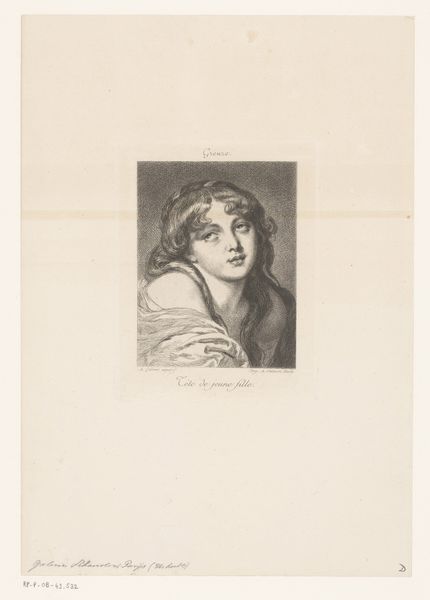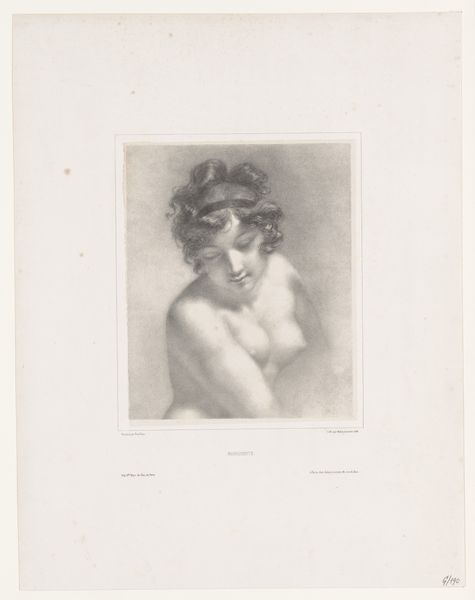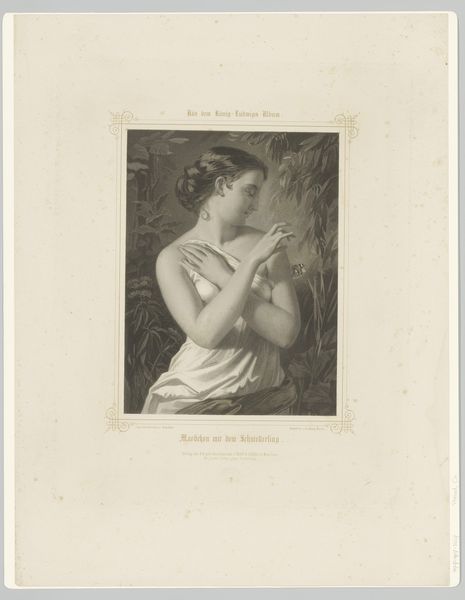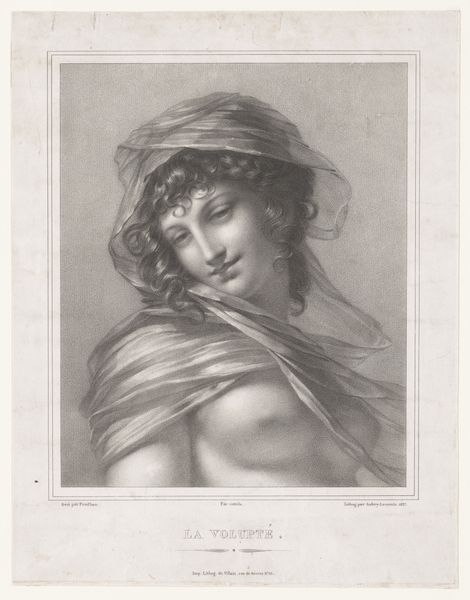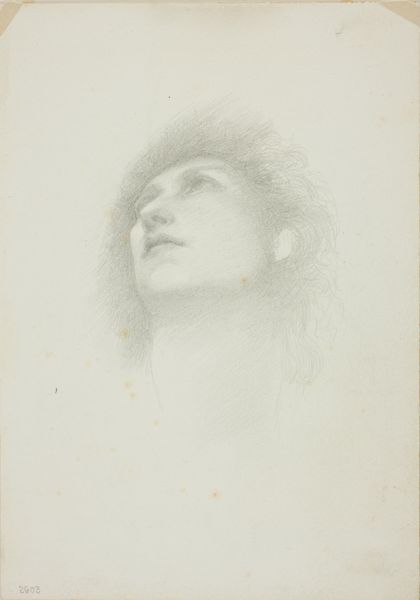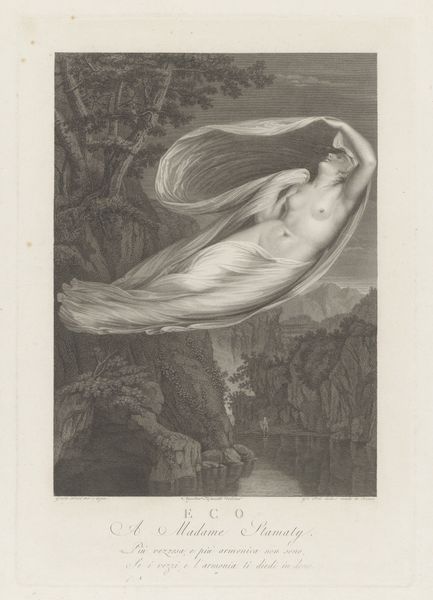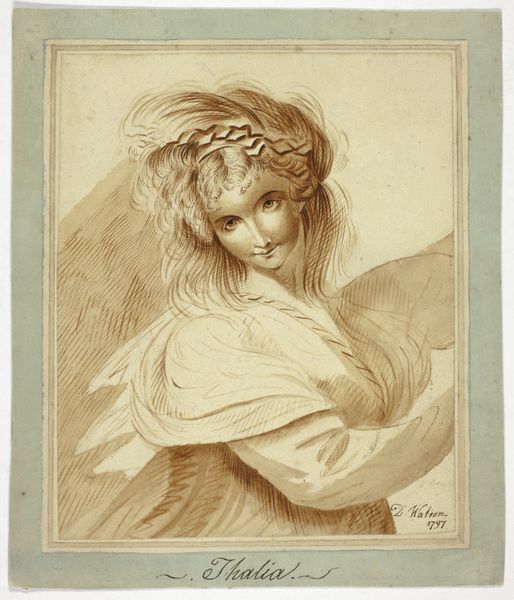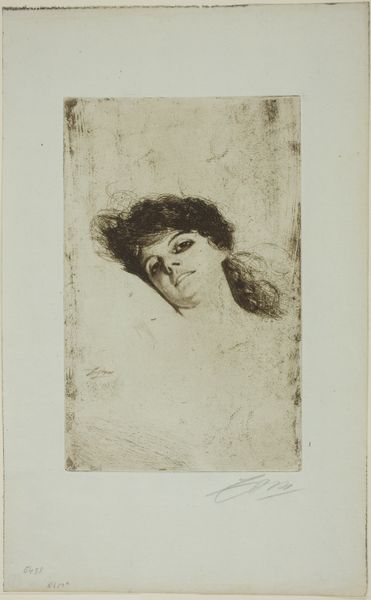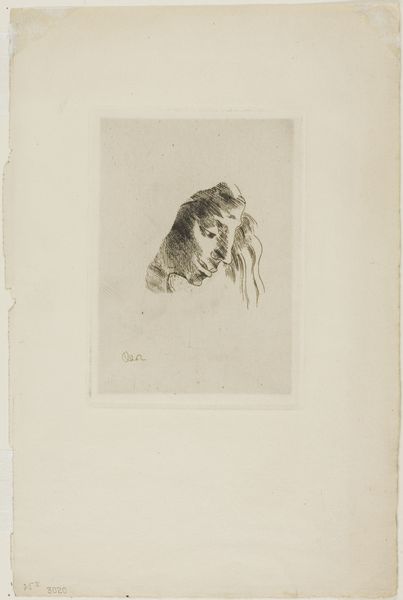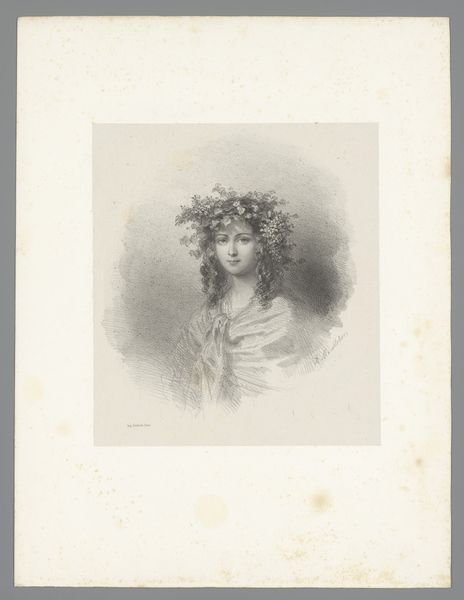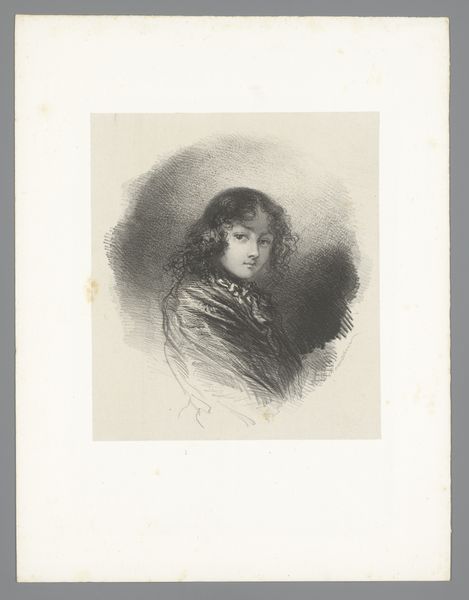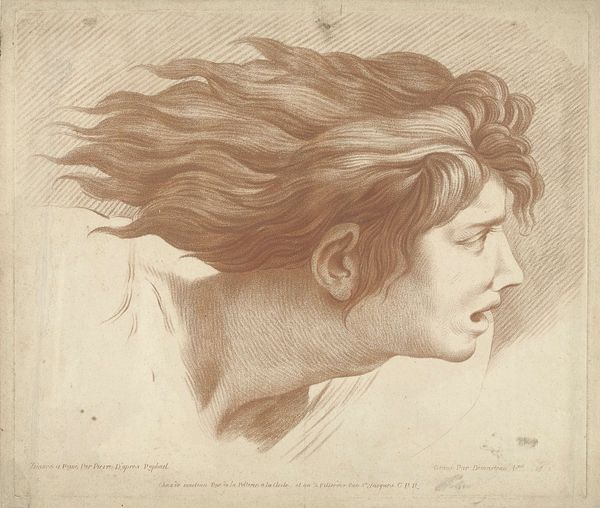
Miranda (Shakespeare, The Tempest, Act 1, Scene 1) 1809
0:00
0:00
drawing, print, engraving
#
portrait
#
drawing
# print
#
pencil drawing
#
romanticism
#
portrait drawing
#
history-painting
#
engraving
Dimensions: Image: 8 1/16 × 6 11/16 in. (20.5 × 17 cm) Plate: 12 3/8 × 10 1/16 in. (31.4 × 25.6 cm) Sheet: 18 13/16 × 12 5/8 in. (47.8 × 32 cm)
Copyright: Public Domain
This print of Miranda from Shakespeare’s Tempest was made by Caroline Watson, an engraver working in late 18th century Britain. She used a technique called mezzotint, which involves laboriously roughening the entire surface of a copper plate with a tool called a rocker, then selectively burnishing areas to create lighter tones. Look closely, and you’ll see the way that Watson coaxed a full range of tone out of the copperplate. The soft, velvety blacks recede to luminous highlights, especially on Miranda’s face. This was not just a demonstration of technical skill, but also of marketing savvy. Mezzotints like this one were luxury goods, prized for their aesthetic appeal and ability to capture subtle nuances. They were collected by wealthy patrons, displayed in elegant homes, and circulated as markers of cultural status. Watson and other printmakers often reproduced paintings, but in this case, she seems to have worked from life. In doing so, she transformed printmaking from a reproductive craft into a mode of original expression. By valuing the artistry inherent in the making process, we gain a richer understanding of both the image and its social world.
Comments
No comments
Be the first to comment and join the conversation on the ultimate creative platform.
